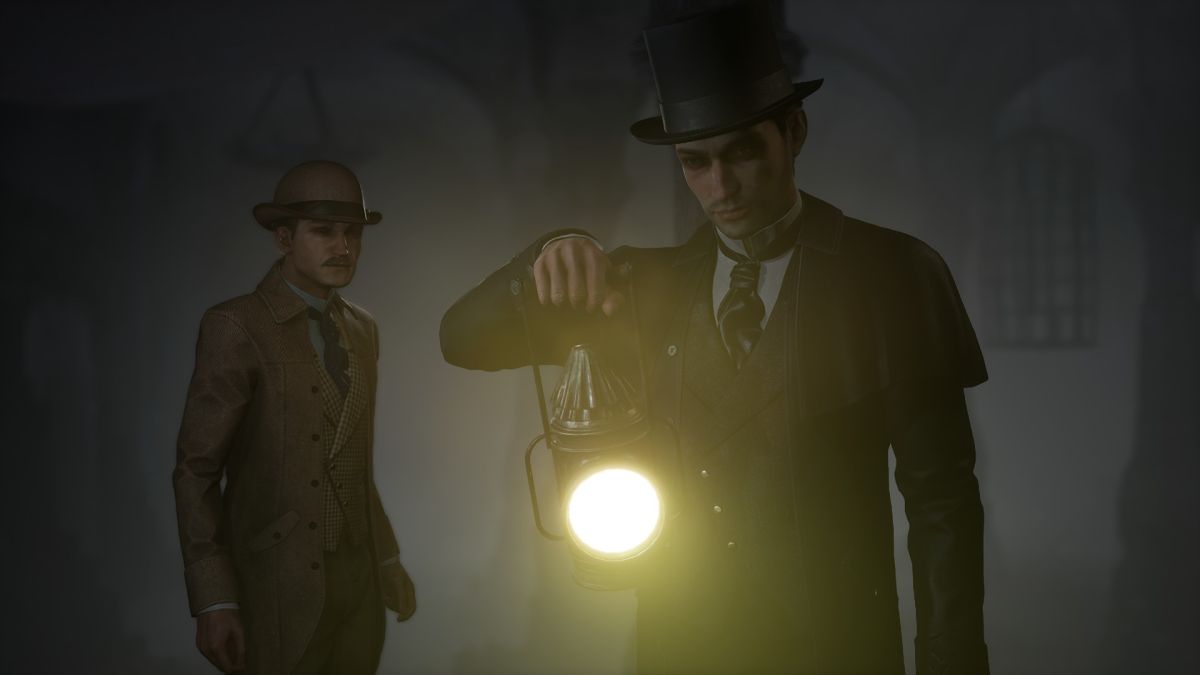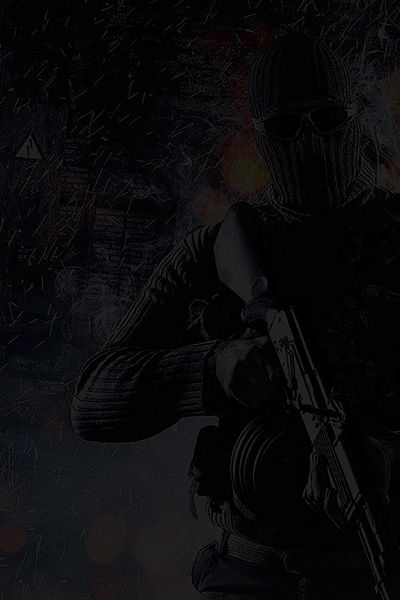Sherlock Holmes: The Awakening review
need to know
what is it? The sequel to Sherlock Holmes: Chapter One follows the famous detective as he investigates the oddities and horrors of Lovecraft’s mythology.
release date April 11, 2023
expect to pay $40/£40
developer frog software
publisher frog software
Reviewed on AMD Ryzen 9 5900X, 32GB RAM, Nvidia Geforce RTX 3080
steam deck playable
associate Official Website(opens in a new tab)
It’s impossible to review Sherlock Holmes: The Awakening without addressing its circumstances. Caught in the midst of the chaos surrounding Russia’s attempted invasion of Ukraine, developer Frogwares decided to crowdfund a project that could come to fruition quickly amid frequent power outages, internet outages, and worse (opens in a new tab): Remake of 2008 The Sherlock Holmes/HP Lovecraft Mashup(opens in a new tab).
Surprisingly, the final game isn’t bothered by its quick and difficult development. Rather than a hasty remake of the original game, Sherlock Holmes: The Awakening is a well-polished full-scale reimagining, and the result is an impressively modern detective game that will feel fresh to longtime fans, but doesn’t need to. Enjoy nostalgia or know the original.
(Image credit: Frogwares)(opens in a new tab)
It’s a killer premise: iconic detective Sherlock Holmes takes on the strangeness of Lovecraft’s mythology. A man who never stops digging and always finds a plausible explanation encounters a world where the more you investigate, the more bizarre and terrifying the answers, until you’re driven mad by your lack of any reason. It’s an unstoppable force striking an immovable object, and the resulting spark not only makes for a compelling story, but also pokes amusingly at Sherlock’s own psyche—in Frogwares’ interpretation, Sherlock Has deviated from normal thinking in some ways.
The game begins on the streets of London with a brazenly mundane mystery – who stole Sherlock’s morning paper? —and then unfolds a grand conspiracy of terrifying cults, profane rituals, and gods within reach, taking Watson and Holmes on a grand journey. Unlike the studio’s previous Sherlock Holmes game, Chapter One, it’s a linear adventure rather than an open world, but it has plenty of variety, taking you to an ominous Swiss sanctuary, the sunny streets of New Orleans, crocodiles Infested swamps, and more.
Each location is a beautiful diorama with its own set of mysteries waiting for you to unravel. As Sherlock, and occasionally Watson, it’s your job to collect clues and eventually connect them to draw conclusions that allow you to make progress. Most of these systems are carried over directly from Chapter One – presumably a choice made to save time and resources, but it works to the game’s benefit as they’re still great puzzle-solving mechanics.
Leads are recorded in your casebook for reference and are marked with icons that indicate how they can be expanded or used to obtain new leads. For example, if you discover a facial sketch of a person, it might make sense to ask bystanders if they know them or look them up in archives, while a set of footprints can be traced back to their source to uncover more evidence of who caused them.
(Image credit: Frogwares)(opens in a new tab)
As the case progresses, you unravel questions, which you can try to answer by connecting related clues. How did the victim die? Relate your description of his wounds to the nearby candlesticks, and you may be a little closer to finding out if the butler did it. You can also visually reconstruct scenes, move through space, place ghostly images to recreate past events, and interrogate, dissect, and indict suspects.
All in all, it’s simple and elegant. The process of examining a crime scene, reading through the evidence, and finally figuring out connections between people, things, and places is beautifully balanced—making you feel like you’re doing real detective work without throwing you off when you’re not In trouble. The correct connection has not been established. As always, Sherlock is the perfect embodiment of this type of game, as he’s the one who can reliably spot any clue and invoke any knowledge to explain it. He struggles to determine what might be important, what it might mean, while you wallow in the puzzle, feeling like a genius all the while.
(Image credit: Frogwares)(opens in a new tab)
If it has one flaw, it’s that it’s very easy to brute force – if you’re a bit lazy, you can usually piece together the wrong answers until you eventually find the right one by process of elimination. But that does feel like a small price to pay, since the flip side of it is that it’s really hard to get stuck–often the bane of detective games. Aside from a few awkward puzzles, Sherlock Holmes: The Awakened always keeps things moving forward slowly, giving it a slow but deliberate pace that never feels dull.
Surprisingly, this game is very focused on the core experience. Previous Frogwares games have tried mixing action sequences and combat for a more sensational feel, often with poor results, and the original 2008 version of The Awakened was filled with lengthy, unwieldy puzzles for simple tasks. There are few of those here, and the welcome game sticks to what it does best.
What it does, however, is sometimes pivot its clue system towards point-and-click problem solving–for example, treating “How do I sneak past this guard?” as a puzzle to be solved, and the solution involves combining unlikely items. These moments are effective enough to move the plot forward without interrupting the flow of the game, but they’re undeniably less satisfying than simply dissecting a crime scene.
(Image credit: Frogwares)(opens in a new tab)
The focus on finding clues and solving puzzles is complemented by a Lovecraftian narrative. The Awakened is that rare game that uses Mythos as a source of subtlety, building tension and atmosphere, rather than an excuse for tentacles to burst out of everything. There are some hallucinatory sequences, in which you solve dull puzzles in a strange void, missing the mark because you get too close to an eerie light, but outside of these, the game has a wonderful, eerie sense of dread. Human evil is always at the forefront, rather than cosmic monsters crawling out of portals, so the game is more disturbing–especially in its bleak final confrontation.
In my opinion, Frogwares has always had a special interest in the horror and the mystical. Even the more straightforward Sherlock games revel in moments of macabre and strange happenings. In The Awakened, you can almost see the developers’ eyes twinkling every time you discover some grim new scene, and the enthusiasm oozes through the various creative moments.
(Image credit: Frogwares)(opens in a new tab)
However, the discoveries they throw in Sherlock’s path are restrictive enough to make it ambiguous whether a real supernatural force is at work. Holmes’ own deteriorating sanity and the cult’s expertise in inexplicable matter provide enough plausible deniability in the game’s more surreal moments that players can draw their own conclusions – a final mystery whose solution is given by You decide, for a satisfying reward — choose either way in the game’s final dialogue choices.
By any metric, Sherlock Holmes: The Awakening is an impressive detective game. That’s a small miracle considering it was developed in an active war zone. Cleverly designed, atmospheric and graceful, the only sign it appears to be compromised by its surroundings is its short length. After about 12 hours, it does leave me wanting more, and perhaps more importantly, it feels paltry to some compared to the $40/£40 launch price. It’s hard to ignore that you can play more than twice as much in the first chapter for the same price, and all of the game’s side quests have to be purchased separately, as the DLC leaves a bitter taste in the mouth.
But if you’re willing to accept a little financial support for a developer trying to keep doing what it does when it’s not possible, you’ll be rewarded with some of the best work Frogwares has done to date. The team’s opening notes describe The Awakened as “our own resilience to the chaos and terror our enemies try to impose on our livelihoods.” This tale of a prim Victorian detective could not be a more unlikely form of defiance, but in its confident craft it is a testament to the extraordinary perseverance of its developer.
Find more articles in our categories Gaming & News et encore Anime.
Thanks for visiting we hope our article Sherlock Holmes: The Awakening review
, think about share the article on Facebook, twitter and e-mail with the hashtag ☑️ #Sherlock #Holmes #Awakening #review ☑️!














Leave a Review